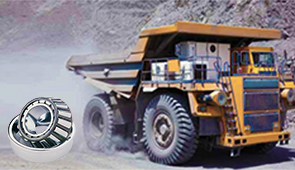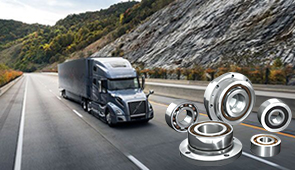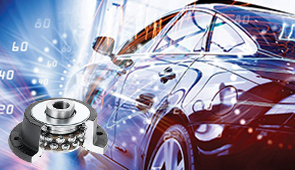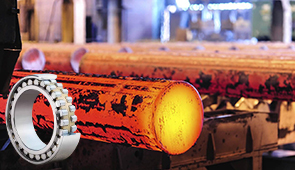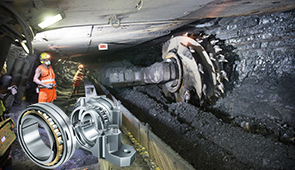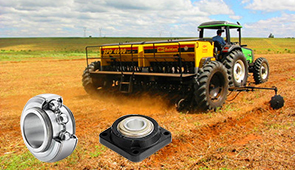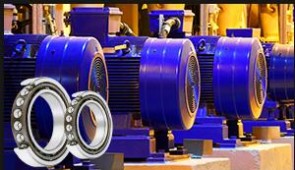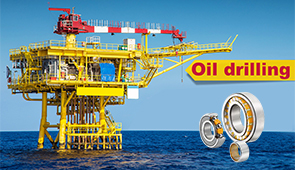Bearing: The Basics Of Bearings That Prevent Your Engine From Failing
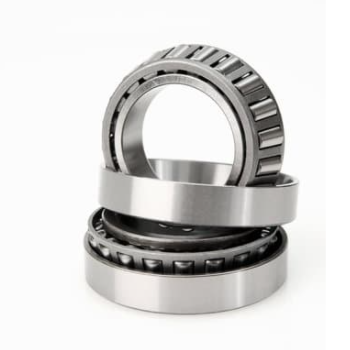
You might not think about it often, but bearings are actually a pretty important part of your car’s engine. In fact, without them, your engine would fail. Bearings are basically metal balls that help reduce friction between moving parts in your engine. They’re essential for preventing your engine from overheating and seizing up. In this blog post, we’re going to explore the basics of bearings and how they help keep your engine running smoothly. We’ll also discuss some of the different types of bearings and their function within your engine.
What are Bearings?
Bearings are a crucial part of any engine, and there are a variety of different types that serve different purposes. The main types of bearings are:
-Main bearings: These support the crankshaft in the engine and allow it to rotate smoothly.
-Connecting rod bearings: These connect the connecting rods to the crankshaft and allow them to move up and down as the pistons move.
-Piston pin bearings: These provide a smooth surface for the piston pins to travel on as they connect the pistons to the connecting rods.
-Valvetrain bearings: These support the valves in the engine and ensure that they open and close properly.
Bearing are essential to the proper function of your engine. Bearings allow parts to rotate smoothly and without friction, which prevents wear and tear on engine components. Bearings also support loads, absorbing shock and vibration to protect delicate engine parts from damage.
Without bearings, your engine would be subject to increased wear, vibration, and eventually failure. That's why it's important to keep your bearings in good condition and replace them when they start to show signs of wear.
If you think your bearings may be failing, it's important to have them checked by a qualified mechanic as soon as possible. Bearings can fail suddenly and without warning, so don't delay in getting them checked out if you think there may be a problem.
The benefits of having good bearings
Good bearings are essential to the proper functioning of your engine. Bearings allow rotating parts to move smoothly and with minimal friction, which helps to improve fuel efficiency and prevent engine damage. Here are some of the benefits of having good bearings in your engine:
1. Improved Fuel Efficiency
Smooth-running bearings require less energy to operate, which can lead to improved fuel efficiency. In fact, according to the U.S. Department of Energy, 5-10% of the energy used by an engine is lost to friction from bearings. By reducing friction, good bearings can help your engine run more efficiently and use less fuel.
2. Reduced Engine Wear
Friction from poor-quality or damaged bearings can cause excessive wear on engine parts. This wear can lead to premature failure of critical components, such as pistons and connecting rods. By using high-quality bearings, you can reduce wear on engine parts and extend the life of your engine.
3. Improved Emissions
Friction from bearing problems can also cause increased emissions from your engine. By reducing friction, good bearings can help improve emissions and make your vehicle more environmentally friendly.
As your engine runs, the bearings allow the moving parts to keep turning smoothly. Over time, however, the bearings can start to wear down, which can lead to serious engine problems. That's why it's important to keep an eye on your bearings and make sure they're properly lubricated.
There are two main types of bearings: roller bearings and ball bearings. Roller bearings use cylindrical rollers to reduce friction between moving parts, while ball bearings use spherical balls to achieve the same goal. Each type has its own advantages and disadvantages, but both can eventually fail if not properly maintained.
To keep your bearings in good condition, you should regularly check the level of lubrication and add more if necessary. You should also clean the bearing surfaces periodically to remove any dirt or debris that could cause premature wear. If you notice any unusual noise or vibration coming from your engine, it's a good idea to have a mechanic take a look at it as soon as possible; this could be a sign that your bearings are starting to fail.
How to tell if your bearings are going bad
As your engine runs, the bearings that keep it functioning smoothly begin to wear down. Eventually, they will need to be replaced in order to keep your engine running properly. But how can you tell when your bearings are going bad?
There are a few signs that indicate that your bearings may be wearing out:
1. Your engine begins to make strange noises. If you notice grinding, screeching, or growling coming from your engine, it could be a sign that the bearings are starting to fail.
2. Your engine starts to vibrate excessively. If you feel unusual vibrations coming from your engine, it could be another sign of bearing failure.
3. You notice an oil leak. If you see oil leaking from around your engine, it could be an indication that the bearings are not sealing properly and need to be replaced.
4. Your car starts to overheat. Bearings that are failing can cause your car's engine to overheat due to increased friction. If you notice that your car's temperature gauge is climbing into the red zone, it's time to get your bearings checked out by a mechanic.
If your car has been making strange noises, it may be time to replace the bearings. Bearings are essential to the proper function of your engine, and if they fail, your engine will not be able to run. Replacing bearings is a relatively simple process, but it is important to do it correctly in order to avoid further damage to your engine.
To replace bearings, you will need:
-A socket wrench set
-A hammer
-A punch
-A new bearing (or two, depending on the type of engine)
-Some grease
First, you will need to locate the old bearings. In most engines, there are two bearings: one at the front of the crankshaft and one at the rear. These bearings are usually located near the pulleys that drive the belts. Once you have found the bearings, use a socket wrench to remove them. If they are stubborn, you may need to use a hammer and punch to loosen them.
Next, clean out any debris from the bearing housing and apply some fresh grease. Then, insert the new bearing into place and secure it with the socket wrench. Repeat this process for the other bearing (if necessary). Finally, start up your engine and listen for any strange noises. If everything sounds normal, then you have successfully replaced your bearings!
Conclusion
Bearings are essential to the function of your car's engine, and it is important to understand the basics of how they work in order to keep your engine running properly. Bearings allow your car's engine to rotate smoothly and without friction, and they also help to distribute heat evenly throughout the engine. There are different types of bearings that are used in different parts of the engine, and each type has its own specific purpose. If you suspect that something is wrong with your car's bearings, it is important to have them checked by a professional as soon as possible.










